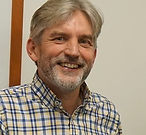Pastors' Perspectives on Consultancy
- Ian Duncum

- Mar 16, 2019
- 3 min read
Updated: Oct 5, 2021

“When we submit our lives to what we read in scripture, we find that we are not being led to see God in our stories but our stories in God's. God is the larger context and plot in which our stories find themselves. ” ― Eugene Peterson
It has been my privilege to listen to pastors tell their stories. Stories of patiently sowing, stories of renewal, stories of risk, faith and hope. Stories that reflect the effort and love they put into the church and their local community. This article reflects glimpses of those stories, sketches of what it means to engage in a consultative process and how that fostered health and growth in the church.
Firstly that, in conjunction with the leadership of the church, the consultants identified and addressed the issues facing the church. This was further achieved through gathering information from those in the congregation through tools such as mapping exercises, listening groups, and interviews. The consultants then made this collated information (with appropriate safeguards regarding confidentiality) available to each church, along with recommendations which sought to deal with each of these issues, or consultancy objectives.
Secondly, that consultancy provides a pathway and suggests next steps for a church to follow. That church consultancy provided part of the framework for moving a church forward.
Thirdly, that church consultancy “encouraged people in their ministries in the church and the community” so that “worth is engendered in what they were doing and could do.” This is particularly important for churches that are struggling with their viability, and/or a loss of hope, so they are enabled to move into the future with a greater sense of confidence.
Fourth, church consultancy can put a church in touch with resources, either people or programs, which can assist them in addressing their objectives. It can be difficult for church leaders and pastors to be cognizant of all the resources at their disposal, so the provision of expertise in this way is a helpful contribution to a church’s health.
Fifth, church consultancy can bring an objective, realistic assessment of a church’s health and assist a church in facing their situation and being “held accountable for what we are doing."
Sixth, church consultancy can be used to bring hidden blockages to health, such as “systemic patterns of communicating and relating”, out into the open, where they can be addressed.
For some of the pastors interviewed, the consultancy was perceived as effective in dealing with a range of specific issues such as: dealing with conflict, prompting inclusion of a cultural community in the church's ministry, or in instigating a strategic plan for growth. (Duncum, 123-124)
Stories of hope and transformation, as consultants come alongside to serve a church and through God's enabling release that church's full potential for impact in the local community. Stories that reveal that God is the larger context and plot in which our stories find themselves.
© 2019 Ian Duncum. All rights reserved. No reproduction without written permission. This is an extract from Ian’s book, The Impact of Church Consultancy (Wipf & Stock).
Dr Ian Duncum is a trained and accredited (with John Mark Ministries) church consultant with 20 years experience of working with non-profit enterprises and churches across a number of denominations. This has also included denominational leadership in church health and development and a research position. An accredited minister with a track record of growing churches, Ian also trains church consultants, facilitates training for ministers and leaders, and mentors/coaches pastors and other leaders. He can be contacted through www.ianduncum.com.au or duncum@internode.on.net









Comments